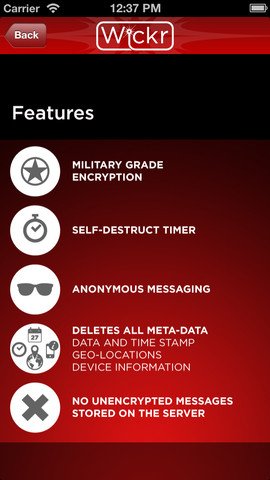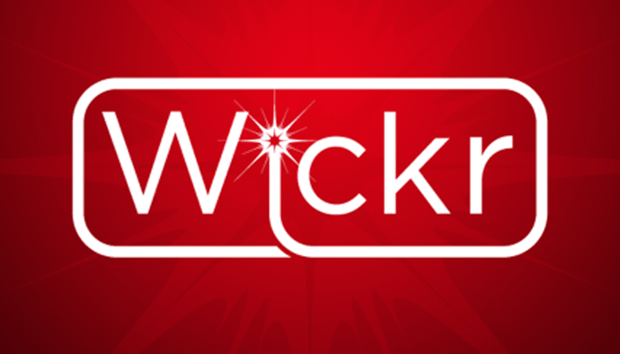
Thor Halvorssen, president of the Human Rights Foundation, lists a few of the threats he’s encountered in the field, in part because of stunts like hacking North Korea with balloons and USB drives.

If they’re assured of it, they can work and organize under conditions of extreme duress. Whistleblowers, protesters and human rights activists crave privacy just as much as sexters. And they’re not just the future Anthony Weiners of the world. While Sell insists the company has seen “hockey stick” shaped growth, it’s cold comfort to the newcomers who have left most of their social network behind.Įven if their contacts never follow suit, the idea of Wickr, however niche-y, still matters, because it carves out one of the spaces where people separated by distance can confide in one another. Wickr users can only send messages to other Wickr users, an airtight community of roughly 1 million, which is a tiny fraction of Snapchat’s 30 million users and an infinitesimally tiny fraction of Facebook’s 1.2 billion users. ( MORE: Emojis, Exploding Coupons Could be Snapchat’s Future)Ĭhest-thumping gestures aside, there is one drawback to this business model.
#Wicker app time crack#
“Everyone else in this market is competing on stickers and emojis,” Sell says, while Wickr competes on security so fiercely that it recently offered a $100,000 bounty to any hacker who could crack its code. Only the sender and recipient have the key and then at the appointed time (6 days or less), kaboom, the message, the key, everything goes up in smoke. At no point does the message sit alongside thousands of other messages on a server with a master key. Each message has an individual key for decryption. The instant a message leaves the phone it gets scrambled by military-grade encryption technology. Wickr spent years designing the most fleeting message on the market. The shorter a message lives, the fewer devices it touches, the fewer the recipients - the harder it is for an outsider to sneak a peek. “Security is on a sliding scale of what’s more or less ephemeral,” Sell says. That’s when Wickr swoops in with its sales pitch.
#Wicker app time how to#
“They can learn how to do it in half an hour,” Sell says, “and as soon as you learn how to do those things you quickly change your habits.” The wider public will make the same shift, she suspects, albeit more haltingly and most likely as the hackees. ( MORE: US Tech Titans Reveal New Data About NSA Snooping) She’s a longtime organizer of the annual hacker conference DEFCON and she’s the co-founder of r00tz, a not-for-profit organization that teaches schoolchildren how to hack cell phones, text messages and laptop cameras, until their faith in online privacy drains away completely. “When I used to tell people I boycotted Facebook,” she says, “people used to look at me like I was insane.”īut Sell views the internet from a slightly different vantage point than the average respondent to a tech survey. And then on the extreme end of alarm there is Sell, the outlier. A poll by the Pew Research Center found that 86% of people online have attempted to rub out some of their digital footprints by clearing caches or encrypting emails, while 55% have taken steps to avoid observation by specific organizations or people.

Odds are you do have some vague awareness of the threat. “Do you know how many other people are looking at your social graphs too,” she asks, “and buying it and making money off of it?” Even after the dust settles on these stories, Sell expects more snafus to come. As Snowden revealed NSA taps in Germany, Brazil, Mexico and France, Sell saw spikes in usage as high as 1000% in one affected country after the next, perfectly coinciding with the news.

Users flocked to her app after hackers infiltrated Snapchat and Skype and in the wake of Edward Snowden’s disclosures - the motherlode of hacking stories. The demand for the most secure, most private self-destructing message out there builds with each spectacular story of hack attack.

( MORE: Snapchat Promises Security Fixes After Hack)


 0 kommentar(er)
0 kommentar(er)
